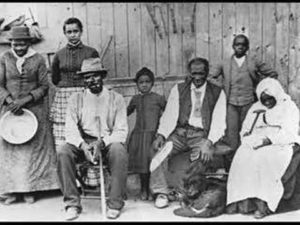
Songs from Slavery
The Deep Roots of Gospel Jazz
Although some people believe that gospel jazz is a fairly recent type of music, its roots began long before the birth of most other musical forms, and impacted nearly all of them. Gospel jazz, also referred to as the blues, emerged out of the intense emotional experiences endured by downhearted people throughout history.
The Origin of Gospel Jazz
During the 18th century, the African slaves who tended the fields of the American South expressed their faith through songs called ‘Negro Spirituals’, which often included heart-wrenching cries, later adopted by the jazz sibling known as the blues. This deeply emotional and improvisational style of music told stories of sorrow that touched the soul of every music genre.
During this period in time, most African-American people did not have the privilege of an education and could not read or write. Consequently, hymns that were sung in church-type gatherings were simple, often consisting of only one line that was repeated over and over again in order to facilitate everyone’s participation. It is believed that Negro Spirituals helped the people to bond together, giving them strength and courage in the face of their hardships.
Birth of the Blues
Gospel jazz, or the blues, describes a musical form that emerged from a mixture of spirituals, work songs, chants, and field cries. It is characterized by very specific chord progressions such as the popular 12-bar blues cord.
The first publication of blues music is not quite clear due to racial discrimination and destruction of property, but it is thought to be around 1890. It is suggested that gospel jazz developed in 1863 after the Emancipation Act and then became popular between the years 1870 and 1890. During this time, juke joints were created, which were places where African-Americans could go to listen to music and dance at the end of their work day. Many scholars believe that the blues were in fact a celebration of acquired freedom.
Thomas Dorsey, whose career spanned the 1930’s, is often referred to as the founding father of gospel music. He combined gospel lyrics with blues rhythms and caused an enormous fuss. Many churches banned him, stating that his hymns were linked to the devil. He carried on with his crusade, writing more than 800 songs that were eventually found in churches that previously had wanted nothing to do with him.
The Gospel-Spiritual Connection
It is said that you cannot truly understand the healing power of gospel jazz until you are completely immersed in it. Standing in a church, listening to this music, makes one realize that it is not just music but rather an expression of various sentiments – joy, pain, praise, regret and thankfulness, typically accompanied by shouts, hand clapping, dancing, sways, and tears of sadness or happiness.
The musical testimony that is witnessed goes far beyond notes and chords. It comprises countless years of interpretation and communication on a spiritual level. Gospel jazz musicians are not just producing music; they are living and feeling it, touching the lives of everyone around them.






